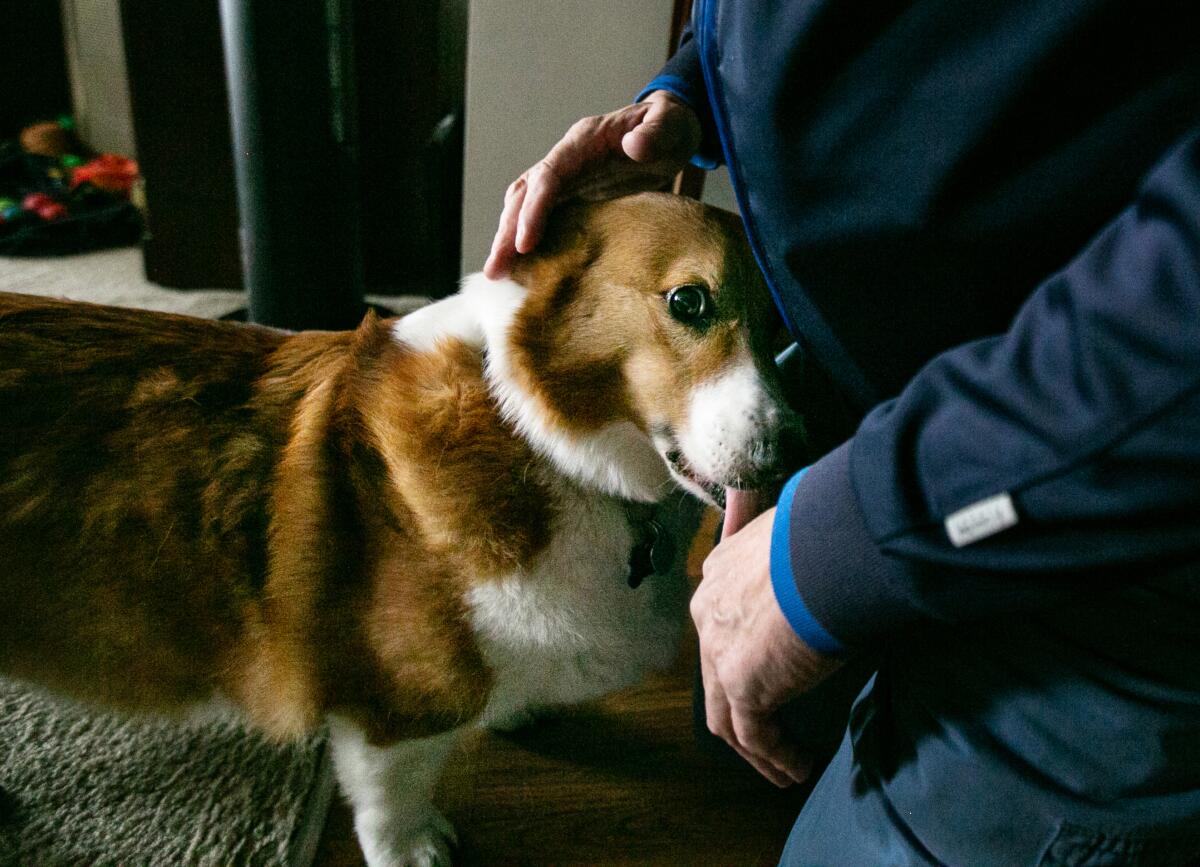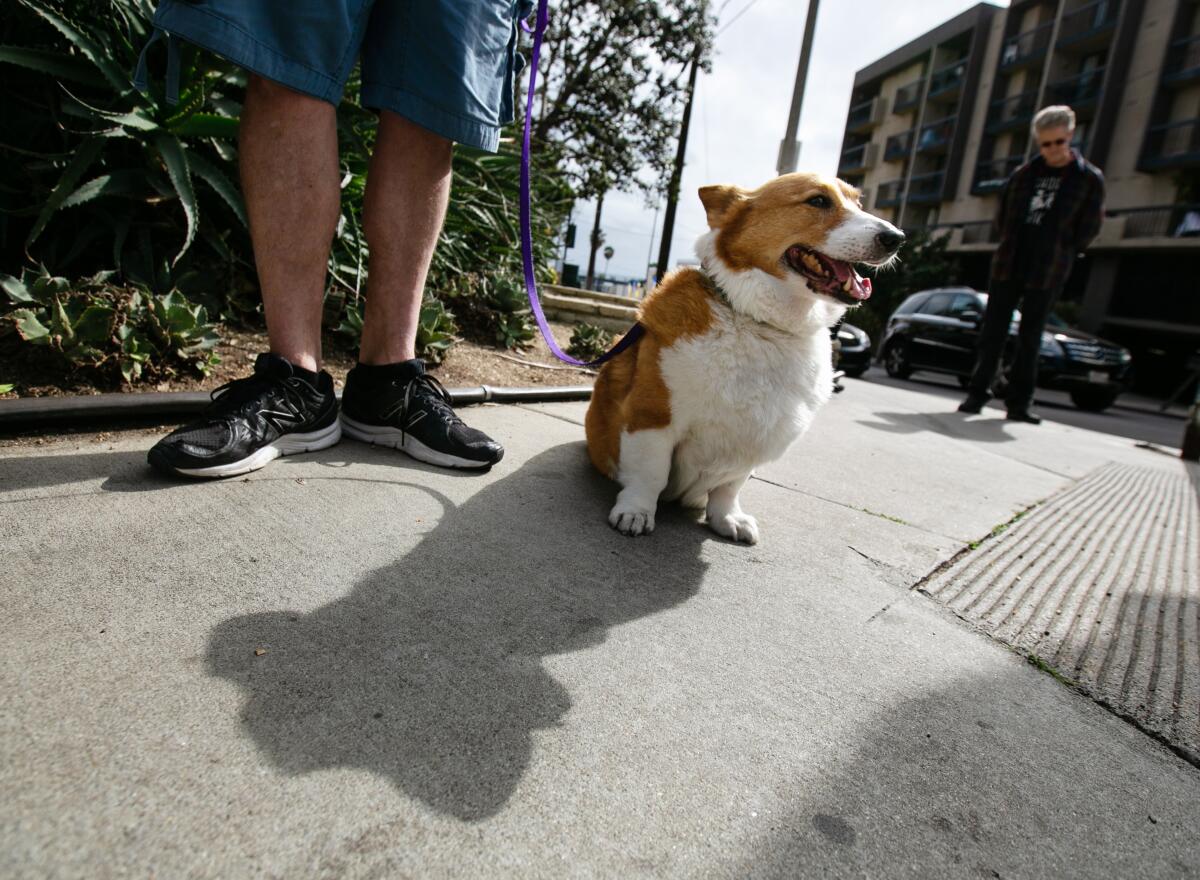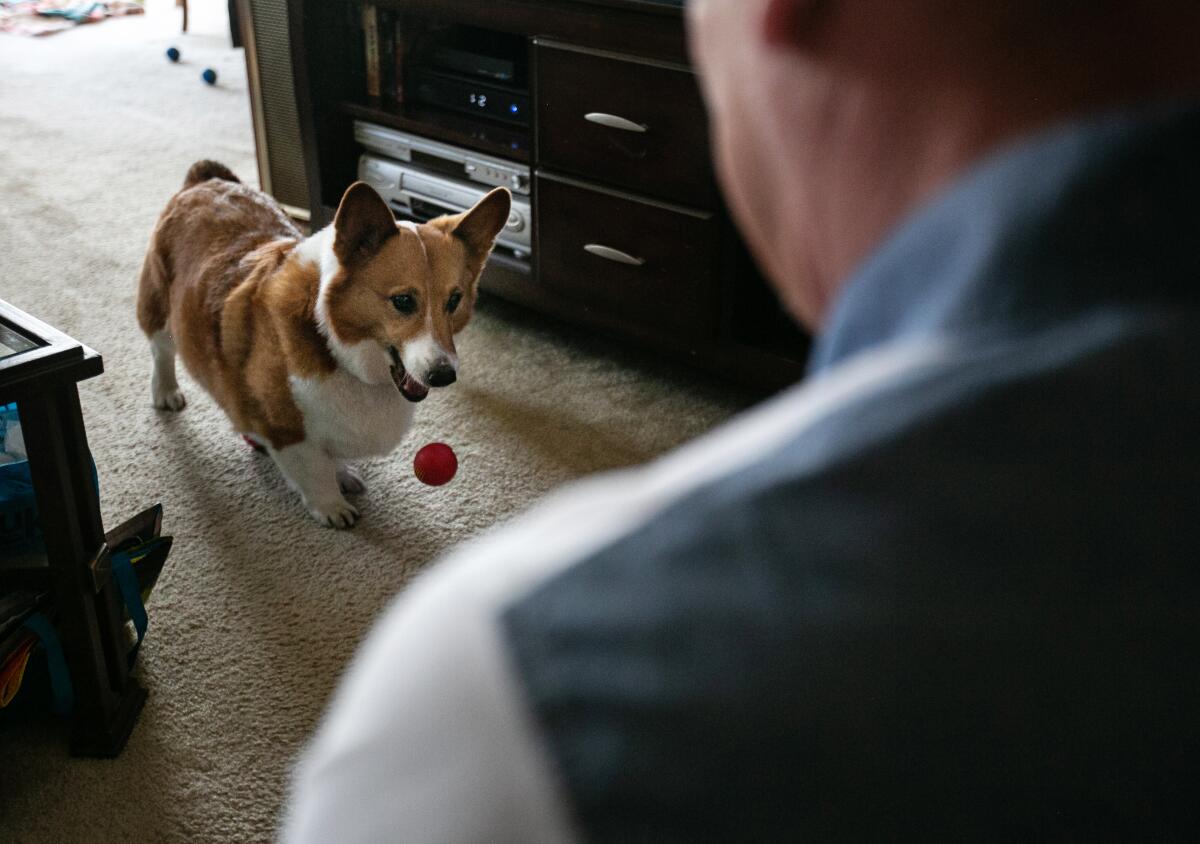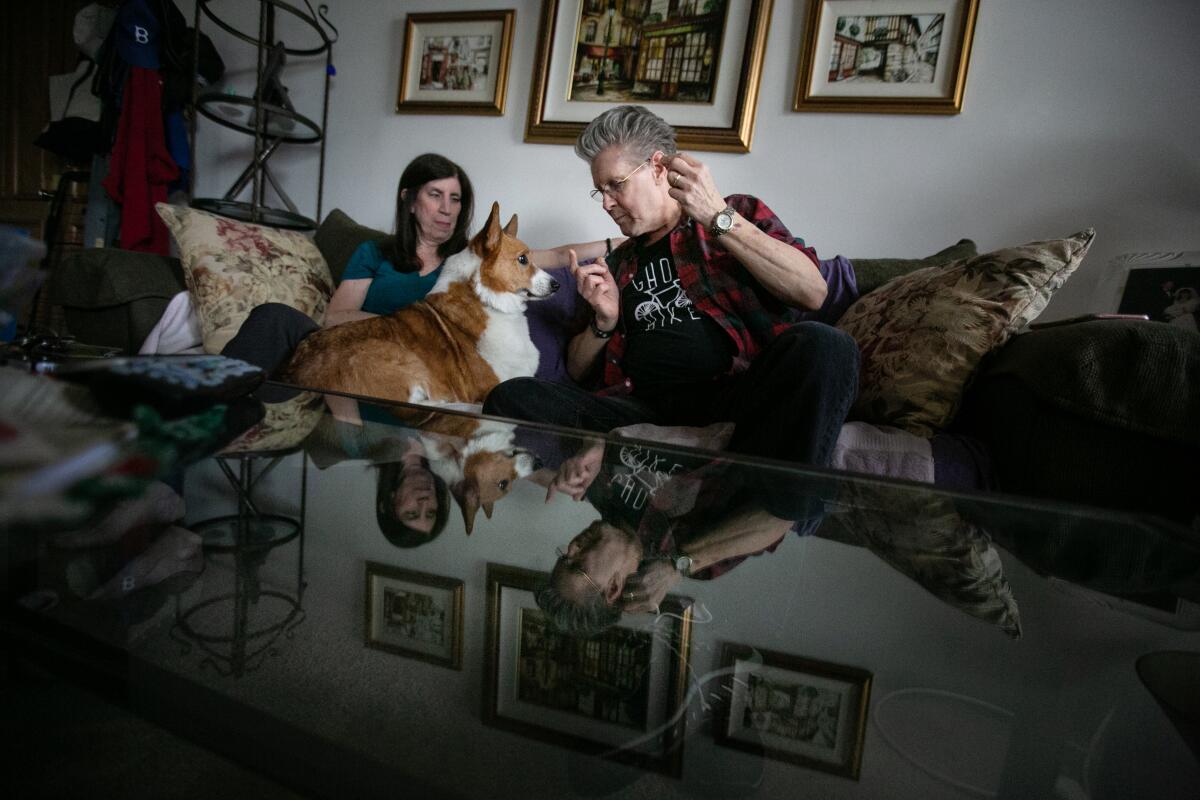City Beat: A homeless man, a corgi and a rescue mission on two legs and four

A lot of us see the great need all around and we want to do something useful but we’re not sure how. What can we do for someone who has lost a job and lost housing? For someone who is teetering on the edge?
This is a story about how help need not be huge to be hugely helpful, and about how helping often helps the helpers too.
This is also a story about corgis, those dogs famously fit for a queen.
Corgis are sweet and smart and known for the utter devotion they show to, and inspire in, their people. Let me start by saying that Ted and Sandy Rogers loved their corgi as much as it is possible to love.
I know this because I’ve known Ted for years on Twitter, and he used to post as many proud photos of the dog as he did entries on his well-read blog about biking. I came to know and love “the corgi” from a distance through Ted’s photos and descriptions. I smiled when I saw her showing off her belly and wearing her bandannas and costumes. I was proud of her for the way she took care of Ted.
When diabetes walloped Ted about five years ago, the corgi somehow learned just how to help him. He described how she watched over him and prodded him and licked him when his blood sugar plunged dangerously low. He credited these attentions on multiple occasions with saving him from the ER.
So I knew how devastated Ted was last spring when the corgi herself became ill. I was devastated for him too, from a distance.
After the corgi, whose proper name was Sienna, died of cancer in August at age 13, Ted and Sandy, who have no human children, sank deeply into their grief. Ted told me that on many a morning he no longer saw a good reason to get out of bed.

Late in the fall, a friend forwarded the couple, who live in Hollywood, a perfectly timed request. She had spotted it on Craigslist while trying to find them some solace.
A man was looking to get his corgi an emergency foster home for a few months. “I’ve been with him for most of his life,” he wrote. “Although he loves me dearly, soon after meeting you, he’ll love you just as much.”
Ted and Sandy weren’t ready yet for a new dog. Still, borrowing one sounded good.
“We figured it would be kind of us helping him, him helping us,” Sandy said of the then-stranger’s plea.
That the corgi and his person loved each other was evident to them at first glance. The two, who had been together since the corgi, now 11, was 1, were obviously deeply bonded.
Ted and Sandy knew better than most how hard it must be for the man to give up his best friend for any reason, even temporarily.
But they didn’t want to pry and so they didn’t ask a lot of questions.
On Sunday afternoons though, when the man visited their apartment to lie on their carpet with his dog and rub his dog’s tummy and toss his dog balls, which the corgi caught in his mouth, the couple began to learn how much their help mattered.
Bear with me here because this is where telling the story gets tricky.
What has happened to the foster corgi’s person has happened to many people. It isn’t his fault. He’s had a run of bad luck.

But shame is tenacious and the foster corgi’s person can’t seem to shed it. So while he’ll let me tell you some things about him, he won’t let me tell you his name. Or even the name of the corgi. He’s that worried that someone who knows him from his previous life will see how far he’s fallen and judge him.
The foster corgi’s person, you see, has a PhD and used to have a great, six-figure job in a company that recruited him here from the Midwest. Since he lost that job in a specialized field four years ago, things haven’t been the same for either him or his dog.
At first he had the padding of severance and savings. He sold his condo back home for more cash. He had confidence that he’d bounce back. He didn’t immediately comprehend how quickly his circumstances could slide downward.
In short order, however, he went from making more money than he could spend and living in a two-bedroom apartment with two big TVs and a new king-size bedroom set to having roommates and then to being a roommate and then to being homeless, going to social-service organizations to seek out short-term emergency housing.
Before long, this highly educated professional in his 50s had joined the masses driving for Uber. And when he could no longer make his car payments and so lost his car, he started renting the cars he drove for Uber by the hour, working longer hours still to cover the rental fees and so not netting very much at all.
At the same time, he was trying to teach himself new skills to enter the field of data science, which offered better job prospects.
And he was doing this as he and his corgi bumped from place to place. Short stints all, they spent time in his sister’s place in Northern California, a bare-bones Airbnb whose cost a relative footed for a month, a group home in south L.A., a single-room occupancy hotel on skid row.
The people who ran that skid row SRO were great, by the way, he said. But his fellow residents were rough. And each morning when he headed to a nearby Starbucks with his laptop to apply himself to his extraction plan, he ran the few blocks with the corgi because the environment felt dangerous.
The corgi was stressed. The corgi’s person was stressed, especially because, while the corgi now was his sole comfort, finding places that would accept a dog was proving to be very difficult.
The owner of the first transitional housing he arrived at changed the locks after he showed her the paperwork for his emotional support animal. They had to sleep that night in the car. He went through an extensive application process for a program that would have given him housing rent-free for two years to help him get back on his feet, but having the corgi with him proved a sticking point.
Enter Ted and Sandy and the respite they offered. From the moment they laid eyes on the foster corgi, they felt the magnitude of their responsibility.

“You could see how traumatized he was,” Ted said. “And from that point our goal became to make him comfortable again to make him happy.” And also, he said, to give the foster corgi’s person “a better dog than we took over.”
Ted said this on the first day I actually met him in person — along with Sandy and the foster corgi and the foster corgi’s person, who responded gratefully, saying of his dog, “It’s been a rough year, a very rough year for him.”
The corgi’s foster people soothed him. They took him on adventures. They took him to The Grove. They’d been warned that he had trouble with other dogs, so Ted, who had trained Sienna, trained the foster corgi to focus rather than panic at the sight of them and got the foster corgi to make his first four-legged friends.
I was with Ted the other day when he took the foster corgi’s person out to show him — and to show him the ropes. When the foster corgi calmly sniffed one dog while another dog sniffed him, we all kvelled.
The we is important. As I frequently mention, one of the hardest things, people tell me, about falling on hard times is the isolation that often follows.
The foster corgi’s person, now in a group home in the Valley, has felt alone and lonely and depressed. He’s felt hopeless at times thinking of other men he’s known in his life who lost their jobs in their 50s and never recovered. Ted and Sandy understand hardship. They’ve had to downsize their lives a lot because of Ted’s health.
Talking to them, getting their encouragement, has helped the foster corgi’s person keep the faith in a better future, just as the corgi’s presence has helped Ted and Sandy ready themselves to take the big step of welcoming another dog into their lives.
With any luck, the foster corgi and his person will be living together again soon. The corgi’s foster people will find a wonderful new dog of their own. Which leads me back to that question of help. Anyone need a smart and highly motivated data scientist? Anyone know of a good home that will welcome a man and his dog trying to catch a break?
If you met the foster corgi’s person, you’d see his worth right away. And as for the foster corgi, each time I have visited him and his extended family of people, he has made the rounds, offering himself up to everyone in the room. As I’ve tried to take notes, he has nuzzled my arm, skewing my letters but winning my heart.
More to Read
Sign up for Essential California
The most important California stories and recommendations in your inbox every morning.
You may occasionally receive promotional content from the Los Angeles Times.











